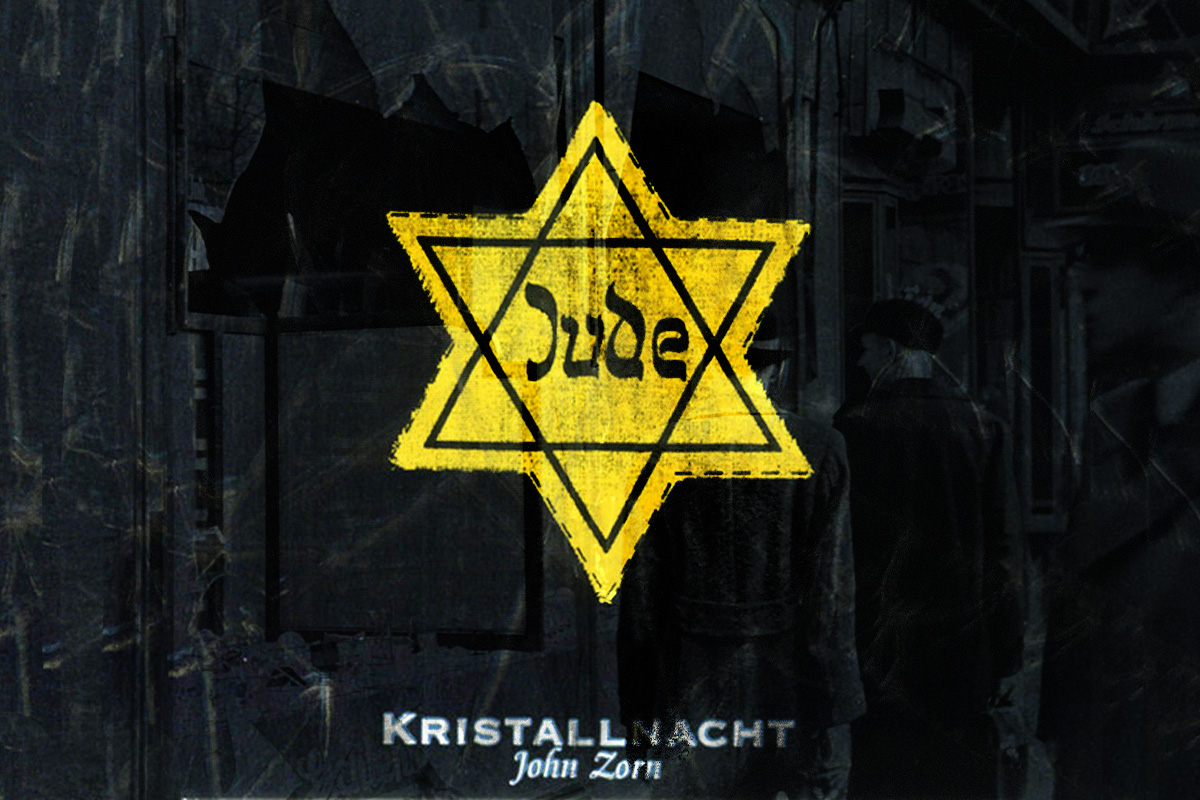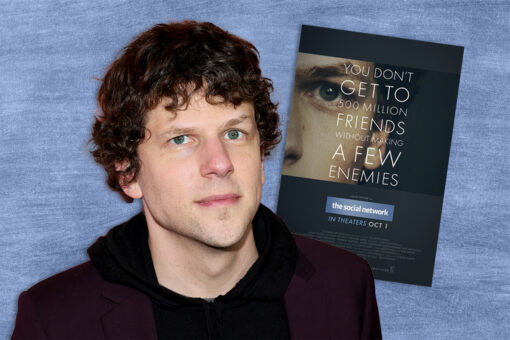My obsession with avant-garde Jewish composer John Zorn has lasted years now. There’s an undeniable mystique to his genre-bending music, let alone to Zorn himself. He releases a hefty handful of albums every year, each one quite different from the last, with a Discogs page that boasts over 200 album releases of his own as well as over 1500 credits on other musicians’ work. Almost none of his music can be found on streaming platforms as he self-publishes most of his work through his independent label, Tzadik.
While Zorn has an eclectic and eccentric oeuvre, some of his most meaningful work for me relates to his Jewish heritage in his “Radical Jewish Culture” music series. He describes it on the Tzadik website as “a challenge posed to adventurous musical thinkers. What is jewish music? What is its future? If asked to make a contribution to jewish culture, what would you do? Can jewish music exist without a connection to klezmer, cantorial or yiddish theatre?”
Zorn’s first piece of music dealing with Jewish themes was “Kristallnacht,” his 1993 commemoration of the anniversary of the Nazi pogrom which historians consider to be the prelude to the Holocaust.
“Kristallnacht” is not an easy piece of music to listen to. As opposed to being a somber threnody in remembrance of the victims, “Kristallnacht” is an aggressive evocation of the horrific events that took place. It’s meant to be triggering.
One press release stated, “Here, violence committed against the Jews during Kristallnacht is translated to an assault of sound for listeners. The work opens with a relentless loop of shattering glass, and Zorn notes it ‘contains high frequency extremes at the limits of human hearing and beyond, which may cause nausea, headaches and ringing in the ears.'”
Even so, last November, I decided to host an impromptu listening session of “Kristallnacht” on my college campus. I’d listened to the album myself, but doing it alone didn’t feel like enough. The historical memory of Kristallnacht is something we share as Jews, and Kristallnacht was experienced by people living in communities. Inviting others only made sense so as to have a more powerful experience of the music.
History and trauma processing is central to so many of our notions of Jewish identity, and for Zorn, it’s no different. One cultural narrative tells us that assimilation and forgetting might feel safer to us as Jews than embracing our otherness and confronting trauma. In rediscovering this part of his identity with “Kristallnacht,” Zorn chose the latter. As he stated in an interview: “Every Jew has to come to grips with the Holocaust in some kind of way, and that was my statement, that’s how I did it… It was like a whole lifetime of denying my Jewish heritage coming out in one piece.”
In preparation for the listening session, I sent an email to two of our Hillel’s advisors: a religious life administrator and a musicology professor. I got both of their blessings as well as a reservation for the “meditation room” of the center for spiritual and religious life. Then I got the word out.
It was really important to me that attendance for this event came from a place of sincerity. Given the triggering content and the anniversary falling right before finals week, I heavily advised against attendance of those for whom the experience would not be healthy. My Facebook post and emails came with bolded, italicized and underlined trigger warnings as well as a reminder for my peers to take care of themselves. I didn’t want people attending the event out of FOMO or just for kicks, either.
Before the listening session, I curated a volume on the meditation room speakers: not so loud as to bust eardrums, but not so quiet that you couldn’t hear every aspect of the meticulously crafted piece. I couldn’t help feeling a conflicting sense of irony as I realized I was subjecting the meditation room (usually a space for silence, rest and guided meditation) to probably the most excruciating sounds it had ever heard.
Ultimately, the listening session included just four of us, all Jews. We convened at 10pm and I reminded everyone they could leave at any time, and that I wanted to be available to support them if they needed anything. We sat there in silence in the darkened meditation room, only dimly illuminated by a few street lights shining through the window. Then, I pressed play.
We sat there together through the experience, listening to loops of shattering glass, yelling in German, blaring sirens and screeching sine waves that were all mixed together with cantorial and klezmer motifs — and even some flavoring from one of Zorn’s oft-used genres, thrash metal. Even having listened to the piece before, the experience was still shocking at an intensely physiological level with unsound vibrations ringing throughout my body.
The music ended and we exited into the warm, inviting light of the center’s living room. For me, the experience was sobering, but also empowering. Like Zorn, I’ve found an emotional entry point to “coming out” and embracing my Jewish identity in Jewish music. It might be crass to call the listening session a “good experience,” but I want to believe it was ultimately an emotionally constructive and impactful one.
For me, Zorn’s album put everything on the table emotionally, provoking me to try and understand what living through Kristallnacht might have felt like on a more visceral level than words can describe. There was a shocking sense of reality and disbelief in the informal way we simply sat down and allowed the music to penetrate our ears. We only had each other in those moments to process and get through the music’s grief. A sense of humility in being human was omnipresent.
While I’ll be hosting the same event again this year, I can’t wholeheartedly give a blanket suggestion that everyone listen to the brutal sounds of “Kristallnacht.” I do, however, want to implore everyone to curate experiences with music or art that are unorthodox, purposeful and even challenging. Give them patience and reverence, allowing yourself the space to feel even the slightest bit unsafe or uncertain. Whether it’s towards your identity as a Jew or otherwise, what you learn about yourself through meaningful musical experiences like this can help you move forward in your life with greater reverence and conviction.



